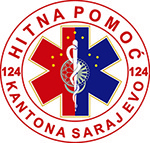BLEEDING FROM THE NOSE
BLEEDING FROM THE NOSE
WHAT IS EPISTAXA?
Epistaxis is bleeding from the nose. Bleeding can be light to heavy, and its consequences range from mild discomfort to, less frequently, life-threatening bleeding. Swallowed blood irritates the stomach, so patients may describe vomiting blood. Epistaxis can be divided into two categories, anterior and posterior, depending on the part of the nose where the bleeding started. Bleeding from the front of the nose is more frequent, compared to the back, because that part is more exposed to physical and mechanical actions. About 60% of people have had nosebleeds at least once in their life. Only 10% of all nosebleeds require medical treatment.
MOST COMMON CAUSES OF NOSE BLEEDING:
Bleeding from the nose (Epistaxa) is caused by rupture of blood vessels inside the nasal mucosa.
The most common causes can be divided into:
1.Local
Digital manipulation, Trauma, Nasal septum deviation
2.Systemic
Alcoholism, High blood pressure, Blood vessel malformations, Blood clotting factor disorder
3.Environmental impact
Allergies, Humidity / Dryness
4.Influence of certain drugs
Voltaren, Brufen, Aspirin, Nasal sprays, Blood clotting drugs, Dietary supplements such as Vitamin E, Ginkgo
FIRST AID FOR EPISTAX
⦁ Relax.
⦁ Sit upright and tilt your body and head slightly forward. This will prevent blood from flowing down the throat which can cause nausea, vomiting, diarrhea.
⦁
⦁ Never lie flat or put your head between your legs.
⦁ Breathe through your mouth
⦁ Use wipes or damp cloths.
⦁ Squeeze the soft part of the nose with your thumb and forefinger. Be careful not to grasp the hard bony part of the nose when squeezing the soft part. Squeezing the hard part or the area above will not stop the bleeding, as pressure must be created on the soft part of the nose.
⦁
⦁ Keep your thumb and forefinger clenched over the soft part of your nose for 5 minutes non-stop, then check to see if the bleeding has stopped. If not, continue for another 10 minutes.
⦁ You can put a cold or ice pack on your nose to encourage narrowing of the blood vessels, which can stop the bleeding. This method can help as an additional option. It is not necessary.
⦁
⦁ After the bleeding stops do not make sudden moves, lift something heavy. Do not blow or poke your nose for several hours.
WHEN TO SEEK MEDICAL ASSISTANCE
⦁ If you have not been able to stop the bleeding even 15-20 minutes after pressing on the nose by squeezing.
⦁ If you have lost a lot of blood for a short time.
⦁ If you have difficulty breathing.
⦁ If you vomited because you swallowed large amounts of blood.
⦁ If nosebleeds are the result of a nose and head injury (car accident, fall, blow to the face).
⦁ If you have frequent nosebleeds.
⦁ If you have symptoms of anemia (fatigue, exhaustion, palpitations, feeling cold, pale skin, dizziness).
⦁ If you have a child under the age of 2 who has a nosebleed.
⦁ If you have nosebleeds while taking medicines that act on blood clotting.
⦁ If you have nosebleeds and have noticed bruising on your body (this may be due to more serious problems, blood clotting disorders).
